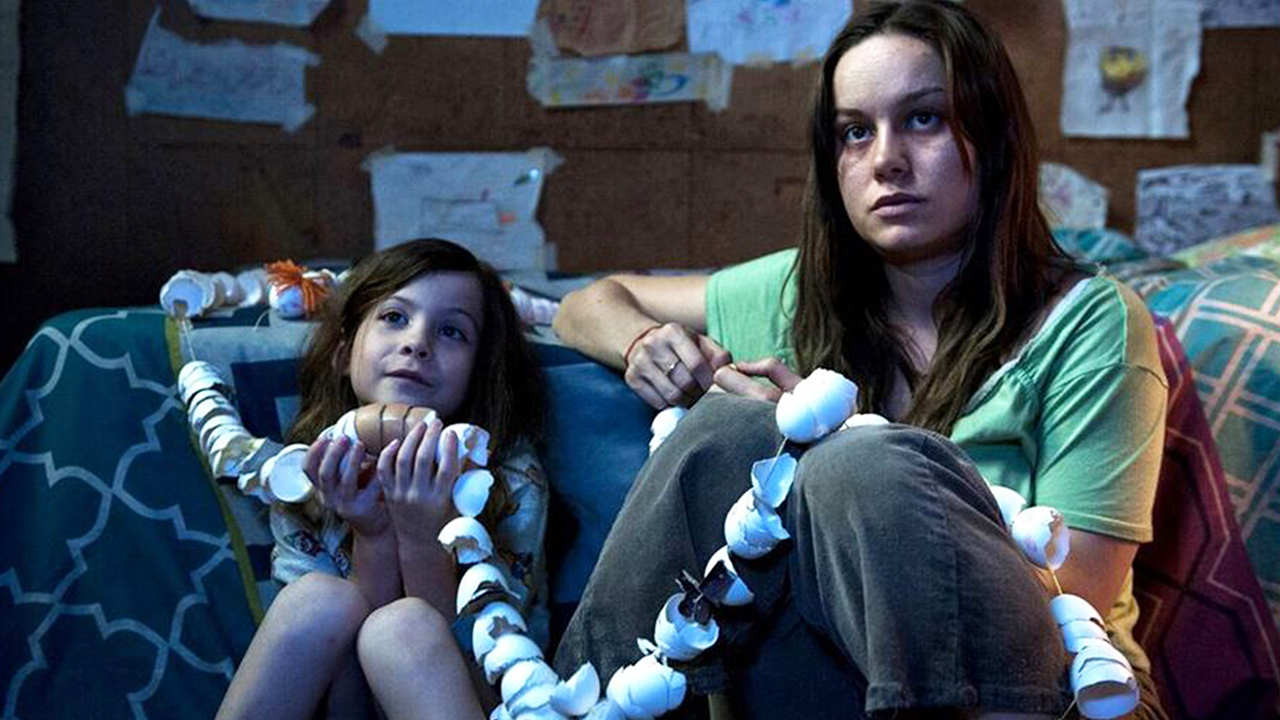Room affirms life, if you let it affect you. Despite the appearance of bleak subject matter (probably SPOILERS AHEAD), the movie digs deep to discover what keeps people going even though darkness surrounds them. And it boasts the cutest kid since the levies broke in Louisiana.
Room is told from the point of view of young Jack (Jacob Tremblay). Jack lives with Ma (Brie Larson) in Room, a magical place closely resembling a shed, where everything has a personality and there are TV planets with TV families. Jack has no idea about the existence of a world outside his own until the situation becomes untenable, forcing Ma to reveal all the stuff that awaits Jack if they leave Room.
I’ll keep the details short, but Room’s first half is a wonderful feat of world building. Director Lenny Abrahamson crafts this tiny space, but provides the right amount of details and great spacial awareness. Emma Donoghue’s book/script does a fantastic job of making the actual Room a character in the film, like “table” and “sink” being something more than an object. That makes Jack’s eventual awakening to his situation that more devastating and hard to comprehend. The tension builds to this breathtaking climax about an hour into the movie where the perspective shifts massively, resulting in a resolution that is equally satisfying and a bit scary. At that point, Room was headed into perfect score territory.
Unfortunately, there is another hour of Room, which is bipolar. Keeping the spoilers to a minimum, there are parts that are great, because it relies heavily on the hour before. Jack and Ma’s perspective and world rebuilding is fascinating psychological entertainment, especially in how different the two react to their new circumstances (the best being when Jack goes back to Room late in the film). When new characters are introduced is where Room falters. Basically, when Room plays quietly with character bonding, it is very successful, and the more screaming and talking, the less of an impact and impression is left. While not dragging Room to a screeching halt, these errors disservice the great first hour of material.
Much of Room’s success is due to its two leads. Brie Larson’s coronation is complete. She is amazingly captivating as Ma, turning a reprehensible situation for her into a positive by creating a world of happiness for her son, pinning her dreams to him. She also carries the heavy emotion in Room’s second half, culminating in a gut-wrenching on air interview. But the clear star is the camera ready Jacob Tremblay. Room is told from his point of view, and the kid walks that tough line of being wide-eyed, but still a kid prone to fits. Tremblay gets better as the movie goes on too; the things he learns about the world around him lead to fascinating reactions from him that I could watch forever. In support, Joan Allen and Tom McCamus (moreso) are decent in short screen time, but William H. Macy needed another 5 minutes to flesh his interesting character out.
Remember when you were a kid, and you learned about something you didn’t even know existed and how that excited you? Room gives you a chance to relive that more than a few times over. Brie Larson and Jacob Tremblay will warm your hearts, and make you laugh and cry. Tremblay needs to be in more stuff, like now. Too late to cast him in the new Star Wars?

